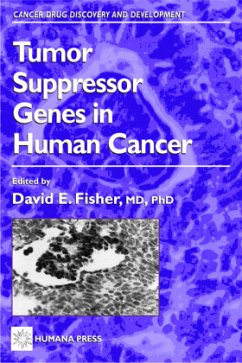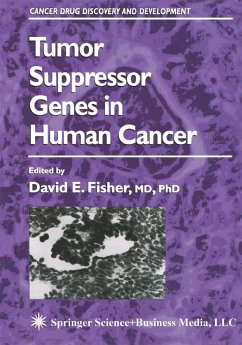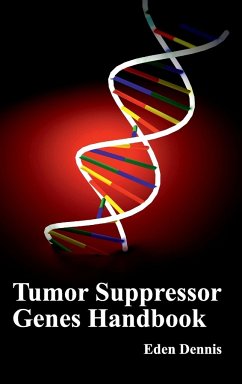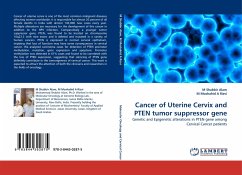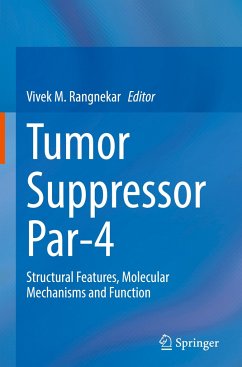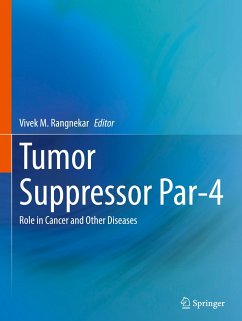
Tumor Suppressor Genes
Volume 2: Regulation, Function, and Medicinal Applications
Herausgegeben: Deiry, Wafik S. El-

PAYBACK Punkte
57 °P sammeln!
It has become clear that tumors result from excessive cell proliferation and a corresponding reduction in cell death caused by the successive accumulation of mutations in key regulatory target genes over time. During the 1980s, a number of oncogenes were characterized, whereas from the 1990s to the present, the emp- sis has shifted to tumor suppressor genes (TSGs). It has become clear that oncogenes and TSGs function in the same pathways, providing positive and negative growth regulatory activities. The signaling pathways controlled by these genes involve virtually every process in cell biolog...
It has become clear that tumors result from excessive cell proliferation and a corresponding reduction in cell death caused by the successive accumulation of mutations in key regulatory target genes over time. During the 1980s, a number of oncogenes were characterized, whereas from the 1990s to the present, the emp- sis has shifted to tumor suppressor genes (TSGs). It has become clear that oncogenes and TSGs function in the same pathways, providing positive and negative growth regulatory activities. The signaling pathways controlled by these genes involve virtually every process in cell biology, including nuclear events, cell cycle, cell death, cytoskeletal, cell membrane, angiogenesis, and cell adhesion effects. Mu- tions in tumor suppressor genes have been identified in familial cancer syndromes, and the same genes in many cases have been found to be mutationally inactivated in sporadically occurring cancers. In their normal state, TSGs control cancer development and progression, as well as contribute to the sensitivity of cancers to a variety of therapeutics. Understanding the classes of TSGs, the biochemical pa- ways they function in, and how they are regulated provides an essential lesson in cancer biology. We cannot hope to advance our current knowledge and to develop new and more effective therapies without understanding the relevant pathways and how they influence the present approaches to therapy. Moreover, it is important to be able to access not only the powerful tools now available to discover these genes, but also their links to cell biology and growth control.






